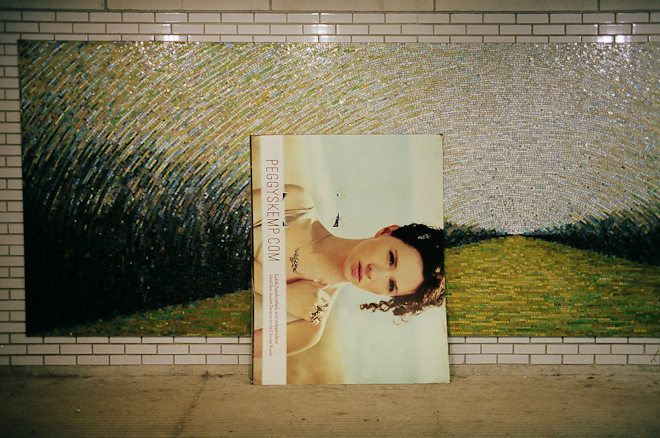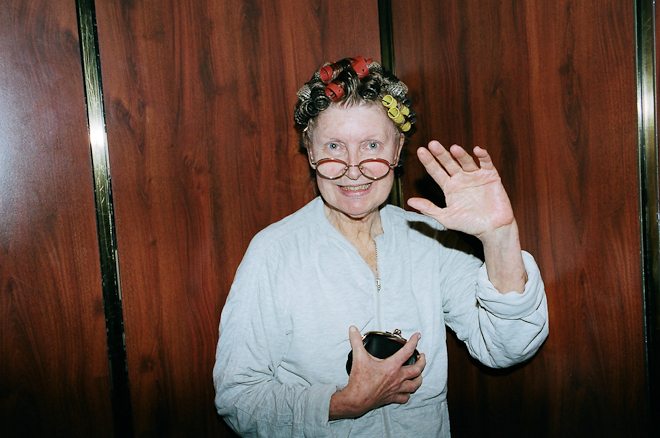
“You don’t eat to be “the best” taster the world, don’t take a stroll to be “the best” stroller in the world, don’t push buttons in an elevator to be the best button pusher in the world.” – Nassim Taleb
One question which has always bothered me is the following: “Why are photographers so competitive?”
Okay I get it– if you work as a commercial photographer you are competing against other photographers to obtain clients and make a living. However in the world of amateur photography (photography in which we do it for pure love, not profit) why does competition matter at all?
The Sociology of Competition

Let me try to break down the idea of competition explained by sociology. According to sociology, (especially in the west) we live in a hierarchical society in which rank is of upmost important. We want to show to others that we are powerful, important, and “successful” (via money and status).
So how do we show our rank in society in general terms? Well, we buy designer goods (Louie Vuitton purses, Armani glasses, $200 jeans), expensive cars (BMW’s, Mercedes, Porsches), and own big homes. Either that (or in addition to) how much money we have in our bank account.
The problem of ranking

The problem of ranking ourselves to one another in society is that life isn’t a zero-sum game. Meaning, life isn’t a competition where there are distinct “winners” and “losers.” Life isn’t a sport where there is clear winner and loser.
If the Chicago Bulls play the Miami Heat there is a clear winner or loser (by how many baskets each team makes). However in life, we could do “better” than others relatively speaking (in terms of monetary value, material objects, etc) but there are no winners or losers.
Social media and competition

Like I said earlier, I have found photographers to be incredibly competitive (even in the small world of street photography). Everyone wants to always out-do one another, get more followers, get more “likes”, more “favorites”– more affirmation by numbers.
I know this from personal experience. I expand a bit on this idea in an article I wrote: “How Many Favorites or Likes is Enough?” in which I always thought once I got a 100 favorites on Flickr (for an individual photo) I would be happy for the rest of my life. Then once I got the 100 favorites, I now strove for 200 favorites. Then 300. The madness doesn’t end. Kind of like how no matter how much money you earn, you will always want more.
Problems of striving for external recognition

We as photographers want to show our prominence and importance in terms of rank in accordance to other photographers by how many followers we have, exhibitions we have done, books we have published, etc. But the problem of this approach is that you are never satisfied.
Imagine lying on a table, where you are strapped down by your arms and legs– and there is a constant drip of water falling on your forehead– and you can’t move. Imagine that burning itch you want to get rid of, but you can’t.
That is like the pursuit of wanting more. You will always have that constant bugging feeling that you aren’t doing enough, you aren’t “successful” enough, and that you aren’t popular enough. If you think about it, what is really the difference between 10 followers and 10,000 followers online? Numbers don’t mean anything. If you just had two people following your work (let’s say Josef Koudelka and Martin Parr I am sure you would be overjoyed (and wouldn’t worry about the numbers).
That is just an extreme example– but just remember– it is the quality of your followers that counts over the number of followers you have. Quality over quantity.
But imagine if you didn’t have any followers (let’s say maybe your mom). But even your mom didn’t like your work. Would you be upset?
Sure you might be discouraged (after all, if you have a Mom that doesn’t support you that is the worst injustice) but remember the most important person to impress is yourself.
Hypothetically you could be the most famous photographer in the world– but if you absolutely despised your work would you be satisfied or happy with yourself?
From competition to collaboration

What I encourage instead of trying to compete with one another to become the “best” photographer out there– that we should rather spend more energy in collaborating with one another.
There are many great photography collectives out there which I follow in which their strength comes from numbers. This includes Burn My Eye, That’s Life, In-Public, strange.rs, Oculi, Observe, Stroma, and many others I can’t currently think off the top of my head.
I love seeing how they collaborate in doing group edits (choosing a certain theme like let’s say “Home”) and each photographer contributes a photo to share in the collection.
Let’s say you aren’t part of a collective. Well you can start off by starting your own local or online collective. And once again, street photography isn’t a competition. It doesn’t matter who has the most followers or who has the “best” photos. It is about connecting with like-minded individuals who share the same passion, and want to help one another out.
If you don’t want to collaborate in a group– you can always connect with one another on the individual level.
One of the problems when you upload photos to social media (Facebook, Flickr, Google+, etc) is that the comments you get are quite crappy like “Nice shot”, “Nice tones”, or “What camera did you use?” One of the lessons I learned from the Street Crit Flickr group when I was first starting off is the importance to give detailed, in-depth, critical, and honest feedback. I would rather have someone be offended by my feedback (that is genuine, critical, and honest) than leave a half-assed comment.
Therefore now my personal rule I am striving towards is the following: Don’t leave a comment on a photo that is less than 4 sentences long (and that doesn’t point out the pros and the cons). Granted I don’t always follow this rule (I won’t give such a detailed critique for a person’s breakfast photo or dog) but it is something I try to give.
And I find when I do give those in-depth comments, people appreciate them. I know personally on Flickr I might get 100 comments that all say “nice shot”– and the one person who gives me an in-depth critique is the one that stands out. Then I tend to check out that person’s work– might contact them and say thank you, and want to help reciprocate and give the other person some helpful and in-depth feedback in return.
Pure giving (versus taking)

One book I am currently reading is called: “Give and Take.” The book’s central thesis is that to be successful in life isn’t to take advantage of others– but rather to be a giver (and give until it hurts).
The author talks about the difference between three types of people:
- Takers (people who want favors from you, but don’t give it back in return).
- Matchers (people who will do favors for you, but want a favor in return. Or if someone gives them a favor, they will return one because they feel obligated).
- Givers (people who give favors endlessly, without expecting anything in return).
Believe it or not, some of the most successful people in the world are the givers. They open up new connections, promote a sense of giving in the community, and spread positivity and good will.
So I advocate you to be a giver when it comes to photography. Always offer your help, your suggestions, your comments, critiques, insights into your craft, secrets behind your post-processing and editing, whatever.
My experiences as a giver

At heart I am a giver (I get it from my mom) and I have to say from personal experience: the more I give, the more I get in return. And not to say that I only give because I expect things in return. Rather, it just happens naturally.
Even with this blog, I started it out of pure love and to share my experiences in street photography. After all, when I started shooting street photography there were very few or little resources on actually “how to shoot” street photography (or guides starting off). So I started the blog knowing that others out there might have the same problems. I never intended to make this a full-time living (I did it as a spare-time hobby) but through a series of unfortunate (but ultimately positive) events I made this a “career.” And if it weren’t for your help (the viewer) this blog wouldn’t be where it is today.
I want to finish off this article with this quote from Nassim Taleb (author of Antifragile), one of my favorite authors/philosophers:
“You don’t eat to be “the best” taster the world, don’t take a stroll to be “the best” stroller in the world, don’t push buttons in an elevator to be the best button pusher in the world.
So if you use this marker to select your activities, you should feel liberated, extremely liberated: don’t write to be the best novelist in the world, don’t do math to be the best symplectic geometry, don’t earn to be the richest… ideally everything one does would escape this notion of rank, separated from sense of duty, of natural impulse.
And the bonus is that when you will listen to those who talk about others in terms of rank, hierarchy of achievement, performance, league tables (“he is in the top 11 in bariatric surgery”), or, worst, precedence of discovery (“he invented the lateral stroller equation”), etc., these people will sound like lower forms of life.
For both those who aim for rank and those who talk about it are lower form of life.” – Nassim Taleb (Link)
So once again– aim to collaborate, not compete when it comes to photography (and life in general).

